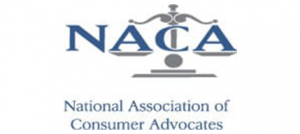California Robocall Lawyer

We face a common dilemma - the uncertainty of whether to answer an incoming call when the number on the screen is unfamiliar.
It’s a situation that many of us can relate to: The phone rings, and we pause our current activities to consider whether it’s worth picking up, all while wondering who might be on the other end.
Sadly, the outcome often disappoints. It could be a prerecorded message or that dreaded moment of silence, which only concludes when you utter a hesitant “hello.”
This frustrating experience is primarily the result of companies relentlessly striving to maximize their sales and achieve the most value from their marketing budgets.
Their telemarketing teams must reach as broad an audience as possible to promote their products or services, and one of the strategies employed to enhance efficiency and yield is automatic dialing systems.
Both federal and state laws have stringent regulations that prohibit the utilization of artificial voices and automated dialing systems for unsolicited calls.
If you can show that someone has violated these laws, you have the right to seek compensation for each unlawful call you receive.
Taking legal action is the initial step in pursuing justice in such cases. To do so, you should consider contacting the experienced team of robocall lawyers at Kazerouni Law Group, which concentrates on cases related to robo-calls.
Why Choose our California Robocall Lawyers
At Kazerouni Law Group, APC, we’re more than just legal professionals; we’re your dedicated partners in fighting against unwanted and unlawful calls.
With a proven track record of assisting clients in enforcing laws that hold companies accountable for their transgressions, here’s why you should choose us:
Compensation for Unlawful Calls
Unwanted phone calls disrupting your peace and privacy? You have rights, and we’re here to help you protect them. Depending on your circumstances, you might receive up to $1,500 in compensation for each illegal phone call you’ve endured.
Free Initial Consultation
We understand the frustration and inconvenience that comes with these unlawful practices. All it takes is a simple call to us to begin seeking justice. We offer a free initial consultation to discuss your case’s details and chart the best course of action.

Contingency-Based Legal Services
We believe that everyone deserves access to quality legal representation without the burden of upfront costs. That’s why our legal services operate on a contingency basis. You’ll only be required to pay legal fees if we successfully secure an outcome favorable for you. Your peace of mind is our priority.
A History of Success
Our firm has a remarkable track record, winning over $1 billion for our clients. We’ve achieved victories in landmark cases in higher courts throughout the country.
Our pioneering litigation tactics have turned seemingly impossible cases into triumphs, bringing justice and financial security to families facing the most formidable opponents.
Personalized Legal Support
At Kazerouni Law Group, you won’t be passed to a paralegal or an inexperienced junior associate. You’ll work directly with a knowledgeable, experienced attorney who will guide you every step of the way.
We prioritize customer service and ensure your case receives the attention and skill it deserves.

These commitments underscore our dedication to your cause and your peace of mind.
Don’t let unwanted calls disrupt your life any longer. We can make your peace our priority. Act today to protect your rights and potentially recover compensation for the inconvenience caused by these unlawful practices.
Give us a call today to discover what makes Kazerouni Law Group different – your trusted partner in the fight against intrusive and illegal phone calls.
We offer two convenient California locations: 245 Fischer Avenue, Suite D1, in Costa Mesa, and 2221 Camino del Rio South, Suite 101, in San Diego.
The Costa Mesa location is right around the corner from St. Monica Coptic Orthodox Church. You can easily find the San Diego office near the Scottish Rite Center of San Diego.
Understanding the Telephone Consumer Protection Act
The Telephone Consumer Protection Act (TCPA) is critical legislation safeguarding consumers from unsolicited and intrusive telemarketing practices.
This federal law, passed in 1991 and subsequently amended, protects individuals’ privacy and gives them greater control over their telephone communications.
Here are the key provisions.
Overview of the TCPA

The TCPA addresses the concerns surrounding unwanted telemarketing calls, automated dialing systems, prerecorded voice messages, and unsolicited faxes.
It provides a framework for consumers to have more control over their telephone lines and opt out of receiving these intrusive communications.
What Are the 5 Key Provisions of the TCPA?
- Robocalls and Automated Dialing Systems: The TCPA restricts automatic dialing systems and prerecorded voice messages for unsolicited calls. Telemarketers must obtain prior express consent from consumers before making such calls.
- Do-Not-Call Registry: The TCPA established the National Do-Not-Call Registry, allowing consumers to opt out of receiving telemarketing calls. Telemarketers must consult the registry and refrain from calling numbers listed on it.
- Consent and Revocation: Consumers can revoke their consent to receive telemarketing calls anytime. Telemarketers must provide an easy and accessible means for individuals to opt out, even if they initially consented to such calls.
- Faxes: The TCPA also addresses unsolicited faxes, even though most businesses have moved to more efficient forms of communication. It prohibits sending advertisements via fax without prior consent. It mandates that all faxes must include a clear opt-out mechanism.
- Penalties and Enforcement: Violations of the TCPA can result in significant penalties. Consumers may take legal action and seek damages, including up to $1,500 per violation, providing a solid deterrent for telemarketers to comply with the law.
Importance of TCPA Compliance

Compliance with the TCPA is crucial for businesses engaged in telemarketing to avoid legal repercussions and protect their reputation. Consumers benefit from reduced unsolicited calls, ensuring their privacy is respected.
The Telephone Consumer Protection Act is pivotal in regulating telemarketing practices and safeguarding consumers’ rights. Don’t be afraid to stand up for your rights. You don’t have to accept a future riddled with constant automated calls. Use this important tool to ease the burden.
Understanding its provisions and ensuring compliance is essential for businesses and consumers to balance legitimate marketing efforts and individual privacy.
What Is an Automatic Telephone Dialing System?

The automated dialing system, often called the autodialer, is a persistent nuisance in our daily lives. Although these devices can be efficient tools for enhancing customer service and disseminating essential information to clients, they inadvertently exacerbate the irritation caused by the incessant intrusion of robo-calls.
An Automatic Telephone Dialing System (ATDS) represents a telecommunications marvel. It is a device or software designed to dial telephone numbers seamlessly without human intervention. This ingenious technology finds widespread application across various industries, including telemarketing and customer service.
What Are the 7 Key Characteristics and Functions of an ATDS:
- Automated Dialing: An ATDS can automatically generate and dial telephone numbers from a predefined list or database. It can dial numbers sequentially or randomly, making it efficient for high-volume calling campaigns.
- Prerecorded Messages: Besides dialing numbers automatically, many ATDSs can play prerecorded messages once the call is answered. This feature is often used for telemarketing or informational purposes.
- Predictive Dialing: Some advanced autodialers employ predictive dialing algorithms, which use statistical analysis to predict when a human agent will become available to take a call. This minimizes idle time for call center agents and increases efficiency but makes life miserable for the general public.
- Call Routing: ATDSs can also route calls to specific agents or departments based on predefined criteria, such as the caller’s input or preferences. This helps in directing calls to the right resources.
- Integration: Many ATDSs are integrated with customer relationship management (CRM) systems and databases, efficiently managing call lists, call records, and customer information.
- Compliance: ATDSs are subject to regulations in the United States, such as the Telephone Consumer Protection Act (TCPA), because of their potential for misuse. The TCPA restricts autodialers, especially for unsolicited marketing calls and prerecorded messages.
- Opt-Out Mechanisms: To comply with regulations, ATDSs often include mechanisms that allow recipients of calls to opt out or unsubscribe from further communications easily. They typically do it through automated voice prompts or keypress options.

The definition and regulation of ATDSs can vary by jurisdiction. In some cases, interpreting what constitutes an ATDS may be subject to legal debates and court rulings.
Given the legal implications and potential for misuse, organizations that use ATDSs for telemarketing or other purposes must be aware of and comply with relevant regulations to avoid legal penalties and protect consumers’ privacy rights.
Government Enforcement Against Illegal Robo-calls: A Necessary Step, but Not Enough
The Telephone Consumer Protection Act (TCPA) is a crucial tool in combating the menace of illegal robo-calls, but its effective enforcement relies on governmental and private actions.

In the original TCPA legislation, Congress vested the Federal Communications Commission (FCC) with the authority to regulate and enforce the law. The delegation of authority means that the FCC is at the forefront of upholding TCPA regulations unless Congress introduces changes or the courts intervene.
The FCC can hold companies accountable for illegal conduct by initiating enforcement actions. Recent examples highlight the seriousness of these actions. For instance, the FCC imposed a staggering $225 million fine on two Texas-based telemarketing firms for inundating consumers with approximately one billion robo-calls.
DISH Networks faced a substantial $215 million penalty for TCPA violations related to robo-calls, marking the largest fine ever assessed against a single TCPA violator.
These instances underscore the government’s commitment to curbing illegal robo-calls. However, there’s a critical caveat – any fines collected by the government go into the United States Treasury, not the pockets of affected individuals.
Filing a Lawsuit for Financial Compensation
You must take direct action to secure financial compensation for the inconvenience caused by illegal robocalls. They will continue to plague you until you do. The first step is initiating a legal process, a journey that the experienced legal team at Kazerouni Law Group is well-equipped to guide you.

Here’s what you need to know:
You Can Take Action: The TCPA gives you the power to enforce the law if you’ve been affected by illegal robocalls. Our team can assist you in using this power effectively. Even if you’re unfamiliar with holding companies accountable for TCPA violations, we have the knowledge and experience to help.
Lawsuits Usually Involve Many People: TCPA lawsuits often involve many people coming together in a single legal action. This makes things more efficient and convenient because it prevents the legal system from getting overwhelmed with thousands of individual cases about the same issue.
We’re Here to Help You: Don’t let illegal robocalls disrupt your life without consequences. You have rights, and protecting your peace is one of them. The Kazerouni Law Group is here to assist you. We’ll ensure that companies breaking the law are held responsible and that you receive the compensation you deserve.
Contact us today to discuss your concerns and start the journey toward justice. We can help you regain your peace and serenity.
Contact Our Robo Call Lawyers at Kazerouni Law Group

Our team is ready to stand by your side if you’re having problems with annoying robocalls. At Kazerouni Law Group, our debt defense attorneys offer nationwide assistance.
Facing constant robo-calls and not even sure you have an outstanding debt? Already have a payment plan and still getting robo-calls every day?
Our consumer protection attorneys have the experience and resources to safeguard your rights and offer solid legal advocacy.
Contact a consumer protection attorney at (800) 400-6808 or a debt defense lawyer online for a complimentary consultation and learn how we can help you today.
Contact Kazerouni Law Group
Talk with an attorney from our firm free of charge.
Free Evaluation